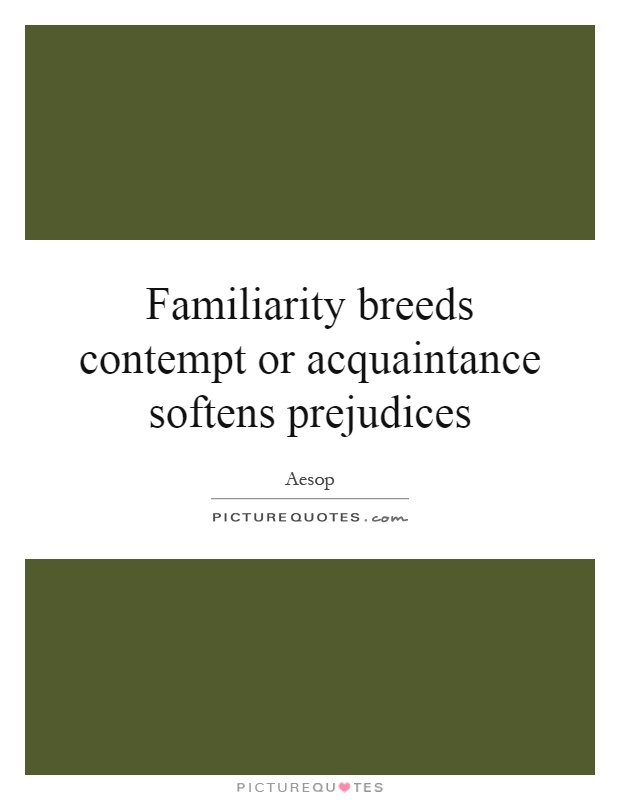Familiarity breeds contempt or acquaintance softens prejudices

Familiarity breeds contempt or acquaintance softens prejudices
Aesop, the legendary Greek storyteller known for his fables, often explored the themes of human nature and morality in his tales. One of his most famous fables, "The Fox and the Grapes," illustrates the concept that familiarity breeds contempt. In this story, a fox sees a bunch of ripe grapes hanging from a vine and desires them greatly. However, after several failed attempts to reach the grapes, the fox gives up and declares that the grapes are probably sour anyway. This fable highlights how people often devalue or dismiss things that they cannot have or achieve, simply because they are out of reach.On the other hand, Aesop also touched upon the idea that acquaintance softens prejudices in his fables. In "The Lion and the Mouse," a tiny mouse inadvertently wakes up a lion from his nap. The lion is about to eat the mouse when the tiny creature begs for mercy, promising to repay the favor someday. The lion, amused by the mouse's audacity, decides to spare its life. Later, when the lion is caught in a hunter's net, the mouse comes to its rescue by gnawing through the ropes and setting the lion free. This fable teaches the lesson that kindness and compassion can overcome prejudices and lead to unexpected alliances.












 Friendship Quotes
Friendship Quotes Love Quotes
Love Quotes Life Quotes
Life Quotes Funny Quotes
Funny Quotes Motivational Quotes
Motivational Quotes Inspirational Quotes
Inspirational Quotes